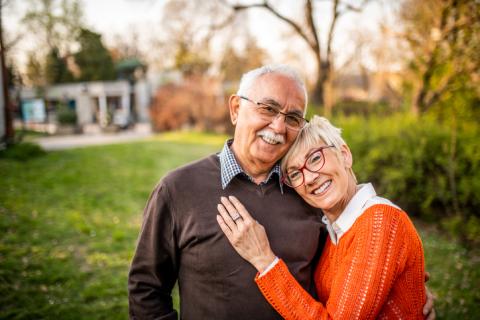September Is Healthy Aging Month. What Does It Mean to “Age Successfully”?
If we reach old age having done everything we could to remain healthy, yet our genes or just plain bad luck have us dealing with disabilities, are we disqualified as being “successful agers”?
No, say experts. Many caution that focusing exclusively on seniors who have escaped disability is a form of ageism in its own right! It discounts the successful aging of millions of seniors who are meeting health challenges with resilience and resourcefulness, finding ways to live life on their own terms.
As we grow older, how can we improve our attitude about our own aging? And what advice can we give to loved ones who might have suffered a blow to their self-esteem when typical changes of later life touched them? Here are some thoughts.
Don’t compare yourself to others. While we will inevitably grow older (if we’re lucky), we’re all unique individuals. Of course, we should make every effort to eat a healthy diet, exercise, and get regular health care. And yet, chances are we will eventually deal with age-related health conditions such as arthritis, heart disease, vision and heating loss, or memory problems. Remember: It’s not a contest! Doing the best we can with the hand we’re dealt is what counts.
On the other hand, don’t chalk everything up to “I’m just growing older.” Studies show seniors with this attitude are less likely to seek medical help for troubling symptoms, such as aches and pains, memory changes, vision problems or depression. They’re less likely to be proactive in protecting their health. They assume that nothing can be done, or fear that the doctor will dismiss their complaints with, “Well, what do you expect at your age?” Yes, certain health conditions are more common with age—but taking steps to manage these conditions is empowering.
Question “anti-aging.” A multibillion-dollar industry targets seniors who want to seem younger. Many products and procedures they offer aren’t very effective. And before you consider a supplement or surgical procedure, ask yourself if it’s to make you feel better, or merely an attempt to look younger. It’s great that more fashion magazines these days feature older models. But again, don’t compare. These models are usually selected for their exceptional youthfulness. When the caption says “This is what 70 looks like!” we should point to ourselves and say, “So is this—and there’s nothing wrong with it.”
Don’t apologize for needing help. The truth is that if we live long enough, almost all of us will need some assistance to remain independent and safe. If you access public services, don’t be embarrassed—you earned it! It’s not charity. If you’ve moved to an environment where you can receive care, or if you are aging in place at home and use services to preserve your independence, be proud! Needing help is nothing to be ashamed of. Not seeking help when you need it is the real problem.
A note to younger folks. Is old age still in the future for you? You should know that studies show young people with a negative view of older adults are less likely to be healthy and happy when they reach their own senior years. No matter what our age, letting go of ageist attitudes and embracing the full range of aging possibilities is a very healthy goal.
